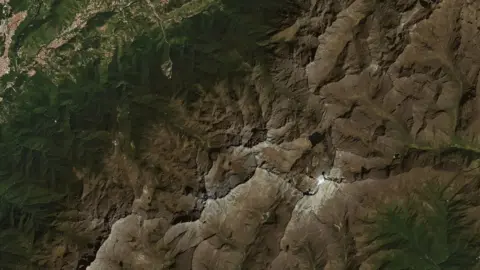In a stark revelation, Venezuela is facing the alarming prospect of becoming the first nation in modern history to lose all its glaciers. This dire situation comes after climate scientists reclassified Venezuela’s last remaining glacier, the Humboldt or La Corona, in the Andes, downgrading it to an ice field. The International Cryosphere Climate Initiative (ICCI), a scientific advocacy organization, confirmed that the Humboldt Glacier had diminished to a point where it could no longer be classified as a glacier due to its size.
Over the past century, Venezuela has witnessed the loss of at least six other glaciers. With the relentless rise in global average temperatures attributed to climate change, the rate of ice loss is accelerating, contributing to the rise in sea levels worldwide. Dr. Caroline Clason, a glaciologist at Durham University, highlighted the significant reduction in ice cover on the Humboldt glacier since the 2000s, leading to its reclassification as an ice field.
Recent reports from the University of Los Andes in Colombia indicated a drastic shrinkage of the Humboldt Glacier from 450 hectares to just two, and further assessments suggest it has diminished even further. While there is no universally accepted minimum size for a body of ice to qualify as a glacier, the generally recognized guideline is around 10 hectares.
Experts emphasized that glaciers are defined by their ability to deform under their weight, and while the Humboldt ice field may still deform, it does not meet the criteria of a glacier. Despite efforts by the Venezuelan government to mitigate the thawing process by covering the remaining ice with a thermal blanket, concerns have been raised about the potential environmental impact, including the contamination of surrounding habitats with plastic particles.
Looking ahead, climate scientists warn that the loss of glaciers, especially smaller ones like the Humboldt, could have significant implications for freshwater availability in certain regions. While efforts to rapidly reduce carbon emissions could help save remaining glacial deposits, the projections indicate that a substantial loss of glaciers is inevitable by 2100, underscoring the urgent need for climate action to mitigate the impact on livelihoods and ecosystems.















































